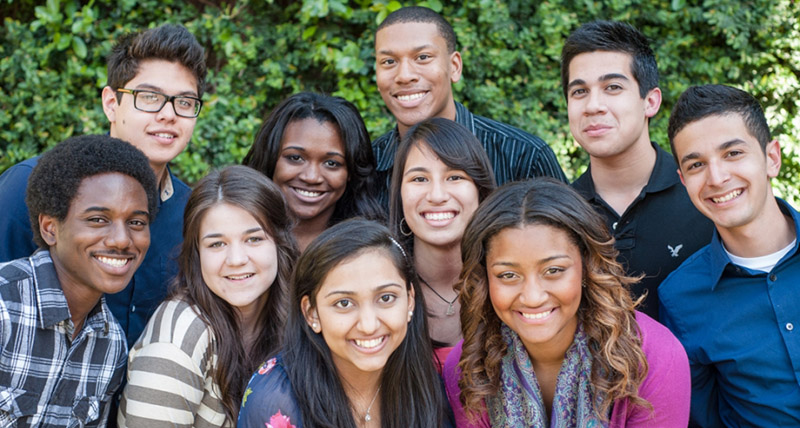Getting into a four-year U.S. college is a competitive process. Data from the National Association for College Admission Counseling (NACAC) show that 66 out of every 100 U.S. students who apply to college for the first time are admitted; that ratio falls to 34 out of every 100 for international applicants.
However, what these admittance rates also show, is that an ambitious student who stands out has strong odds of being admitted.
Yet some students fail to embrace these odds and instead, cling to beliefs that jeopardize their chances. If these describe you, work on disabusing yourself.
Belief number 1: You start creating your college list by researching colleges
Oftentimes, I meet students who explain that they are having a difficult time deciding which colleges to apply to, but they are making progress because they have “started researching schools.” Depending on their temperament and financial situation, they usually focus that research on top-ranked colleges or on colleges that provide generous funding.
Focusing on a college’s ranking is not prudent—the most selective college is not necessarily one where you will receive all the attention, resources, and support you need to springboard into life after college. Similarly, not because a college will fund your time there means it will meet your academic and social needs.
The way to choose a college is to start by researching yourself. Get to know what you bring to the table, what you need in order to excel, where you prefer to situated, how and by whom you prefer to be taught, the kind of classmates you want to have, the undergraduate opportunities you need to prepare you for graduate school or the work world, etc.
When you establish specific but flexible criteria, you can more easily find colleges. And the odds are greater that they will be ones you get into, enjoy, and graduate from.
2: You can’t get into a selective college because you are not among the smartest applicants from your high school
While university applicants at all levels worry about how they will fare in competitive admissions processes, high school students experience chronic periods of what I call ‘comparisonitis’. Most are not aware that because academic achievement is the most important factor in the admissions process, it is not novel for applicants to present stellar academic credentials.
The candidate who then stands out among academically sound peers is the one who presents other evidence that they can add unique value to campus.
I love and encourage academic excellence. However, incoming college classes are composed of students who excel in diverse and multiple areas. Deciding that you won’t get into a certain college because your classmate with higher scores is applying, especially if you have scores within the range that your dream school requires, can cost you possible acceptances.
3: You will get into your top choice school because you have an excellent academic profile
In the same way that you might not be denied admission to your dream school because other applicants have grades higher than your own, you are not guaranteed admission because you have a stellar academic profile.
No matter how perfect your scores, figure out what other value you can add to a college community and communicate it. Pay close attention to other components that are weighed heavily, such as your essay and the interest you have shown in a school—blowing off these other components are a sign of arrogance and a proven way to get rejected.
4: You apply to college during your last two years of high school
Your college application journey has seasons in which you are intensely focused on it. For many students, most of their college application work is done during their final two years of high school. However, don’t be misled, you start applying to college from before you get to high school. You should strive to attend an excellent high school.
The quality of your high school curriculum and the calibre of its teachers will impact which colleges will even take your application seriously. So, too, will your track record and the robustness of your counselor and teacher recommendations. Every day of your high school career is when you are applying to college.
5: The name of the college you attend will determine your success in life
I attended a college and a university that gave me tools I needed to thrive after graduation. These schools, Bates College and Columbia University, also happen to be considered selective. Because of this, I am cautious when telling students “the name of your school does not matter.”
Of course, I have seen (and experienced) how the name of your alma mater influences people’s perception of your abilities. However, I have met scores of people who attended colleges and universities that are not known for being selective, and they are high achievers in their personal and professional lives.
Strive to attend a college with a track record of providing students a high quality education and unwavering support, but don’t obsess over the name of your school. Ultimately, your ability to advocate for yourself, leverage the help of others, and establish a track record of delivering results will impact your future far more.
To get into a college where you thrive:
- Start by getting to know yourself
- Be able to articulate what unique value you bring
- Don’t rely solely on strong grades to get you in
- Act on the knowledge that you are applying to college every day
- Understand that the success you experience after college is not dependent on the name of the college that you eventually choose; it depends on you.
For a complete guide on what you should be doing every year in high school in order to increase your chances of getting into college, download The High School Student’s College Application Checklist.



